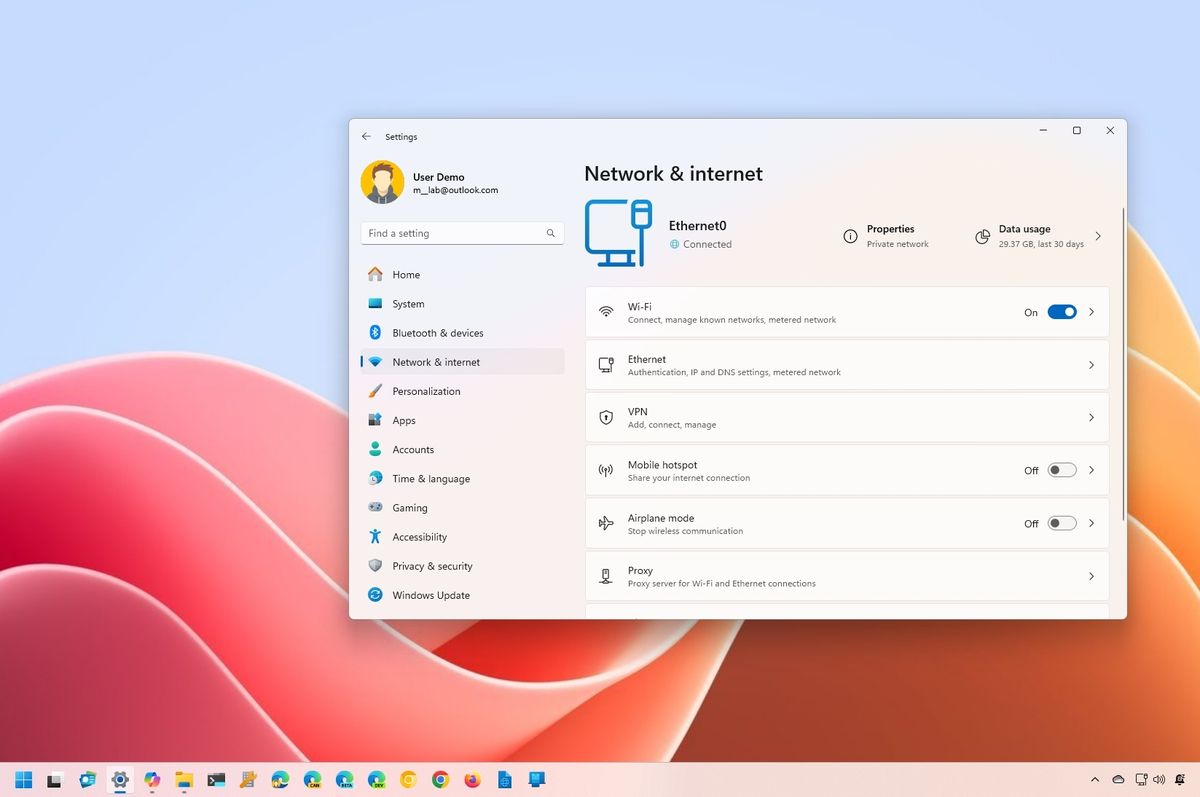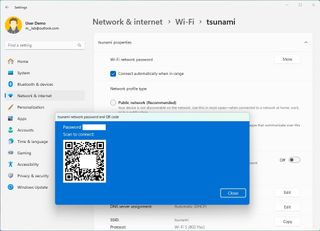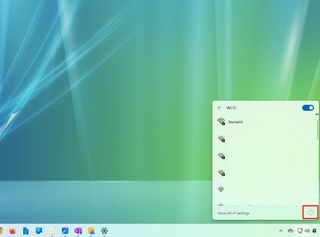What's new with networking on Windows 11 version 24H2 (2024 Update)
Here's what you need to know about the networking changes coming with the 2024 Update for Windows 11.

On the Windows 11 2024 Update (version 24H2), in addition to the slew of new non-AI and AI features and visual changes across the desktop experience, the feature update introduces several improvements for the networking components.
As part of the new changes, the new version of Windows 11 adds support of Wi-Fi 7, updates the Quick Settings flyout to make easier to manage wireless networks and VPN connections, and introduces changes for Server Message Block, Local Administrator Password Solution, and Network-designated Resolvers protocol.
In this guide, I will dive deep into the most interesting improvements for networking that Microsoft is rolling with the release of Windows 11 version 24H2.
Disclaimer
Important: As a result of Microsoft gradually rolling out new features and improvements for Windows 11 versions 23H2 and 24H2, not all the changes will be available on day one with the release of the 2024 Update. Also, some improvements meant for version 24H2 will eventually be ported to version 23H2. The company is even working on changes that will first be available on version 23H2, and then they will be ported to version 24H2. Also, it is worth noting that the feature update became partially available on June 18, 2024, for Copilot+ PCs, but with only some of the intended features, excluding Windows Recall, as it has been postponed until further notice. In October, the feature update will become more broadly available for existing devices. Finally, AI features may require new hardware (such as NPU) to be available.
What's new on networking for Windows 11
These are the biggest networking changes rolling out with version 24H2.
Wi-Fi 7 support
One of the biggest additions for networking on Windows 11 version 24H2 is the new support for Wi-Fi 7.
The new support is known as the IEEE 802.11be Extremely High Throughput (EHT) standard, and while it's based on the Wi-Fi 6 and 6E standards, it delivers speeds over 40Gbps, which is more than four times the speed offered by the previous versions of the technology.
In addition, Wi-Fi 7 offers lower latency, improved efficiency, reliability, and power management.
Get the Windows Central Newsletter
All the latest news, reviews, and guides for Windows and Xbox diehards.
Although the operating system now includes this new wireless support, your computer will require a Wi-Fi 7 adapter and supported hardware in the network to use this technology. If you don't have a Wi-Fi 7 adapter, the system will default to the version available on the computer.
QR Code wireless password sharing
This new version of Windows 11 also updates the properties page for wireless connections. For starters, the "Wi-Fi network password" setting is now located at the top of the page. When clicking the "Show" button, in addition to revealing the wireless password, you will also notice a QR Code that you can scan with a Camera app from another device to connect to the network without extra steps.

You can use the Camera app on your computer, phone, or another compatible device.
Quick Settings network refresh
As part of the networking improvements, the 2024 Update also changes the design of the Wi-Fi page in the Quick Settings fly out to include a refresh button.

In the past, when you needed to connect to a Wi-Fi network, but the access point wasn't on the list, you had to wait until the system updated the list automatically, which could take a long time. The refresh button allows you to refresh the list of available networks on demand.
This is a subtle change but a welcome addition to the networking experience.
Quick Settings VPN connection
While on the network page from the Quick Settings fly out, if you have one VPN connection, the page will display an option to connect and disconnect with a single click. If you have multiple connections, Microsoft has made changes so that it takes fewer steps to establish the connection.
Server Message Block (SMB)
Microsoft is also taking steps to enhance security and provide more granular control for Server Message Block (SMB). In short, SMB is a communication protocol that facilitates the sharing of files, printers, and even serial ports among devices on a network.
Some of these improvements include support for connecting to an SMB server over TCP, QUIC, or RDMA using alternative network ports other than the default ones. While trying to avoid going off-topic, in the server version of the operating system, SMB over QUIC supports endpoints with other port numbers instead of 443.
The company is implementing certificate support with alternative names for the subject for SMB over QUIC client access control feature.
Server Message Block includes support for encryption requirements for outbound client connection.
Also, the SMB NTLM blocking now ships with support for exception lists to configure a general block while permitting clients to use the NTLM for a particular server that doesn't support Kerberos.
The company is also making changes to the firewall to increase security. One of these changes is the configuration of the new "File and Printer Sharing (Restrictive)" group, which no longer uses inbound NetBIOS ports 137-139.
Furthermore, administrators can now disable the SMB over QUIC clients through PowerShell and Group Policy. It's also possible to enable auditing of the SMB server and client to support signing and encryption.
Finally, connections that were established successfully using SMB over QUIC will now appear in the system event logs.
It's important to note that as part of version 24H2, the SMB may cause problems trying to map a network drive from a third-party Network Attached Storage (NAS). This is because, by default, SMB sign-in is required for all connections, and the guest fallback feature for SMB is now disabled by default on Windows 11 Pro to increase security.
Local Administrator Password Solution (LAPS)
The Local Administrator Password Solution (LAPS) is a Microsoft feature provided to manage the local account passwords of domain-joined computers.
On the Windows 11 2024 Update, the software giant introduces multiple changes to improve manageability and security. For example, now administrators can configure LAPS to create managed local accounts automatically. This also integrates with existing local account management policies.
The "PasswordComplexity" policy has been updated to generate passwords that are easier to understand. The new change will ignore certain characters to make the password more readable. In addition, the LAPS tab in the "Users and Computers" snap-in now uses a different font to make passwords easier to understand.
Furthermore, Local Administrator Password Solution supports the ability to generate passphrases that are more readable and easier to type. Also, administrators can choose from three-word lists and control the passphrase length.
Finally, LAPS now has the ability to detect when a computer rolls back to a previous image, making sure that passwords are the same between the computer and server running Active Directory. However, administrators are required to use the "Update-LapsADSchema" PowerShell cmdlet to work with this feature.
DNR protocol support
On Windows 11 version 24H2, Microsoft is also adding support for the Discovery of Network-designated Resolvers (DNR) protocol. The DNR is a new protocol for discovering encrypted DNS servers.
The new protocol allows devices to use encrypted DNS protocols on the devices without requiring manual configuration.
More resources
For more helpful articles, coverage, and answers to common questions about Windows 10 and Windows 11, visit the following resources:
Mauro Huculak has been a Windows How-To Expert contributor for WindowsCentral.com for nearly a decade and has over 15 years of experience writing comprehensive guides. He also has an IT background and has achieved different professional certifications from Microsoft, Cisco, VMware, and CompTIA. He has been recognized as a Microsoft MVP for many years.
